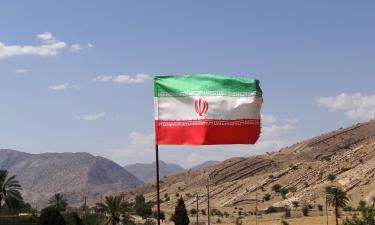Know What Capitalism Is
Atilio Borón *

Capitalism has legions of apologists. Many do so in good faith, the product of their ignorance and because, as Marx said, "the system is opaque and exploitative and its predatory nature is not evident in the sight of men and women of the world." Others claim they are its major beneficiaries and they get huge fortunes on its injustices and inequities.
There are also others (gurus, financiers, opinion makers, journalists, academics and thinkers, and various representatives of a single mind) who know exactly what the system imposes in terms of social and human costs and degradation of the environment, but they are very well paid to omit these issues in their reports. They know very well that the "battle of ideas" that was convened by Fidel Castro is something that can be dangerous to the ideologies that at heart they defend and therefore they are not engaged in denouncing the evils of capitalism.
To contradict the proliferation of idyllic versions about capitalism and its ability to promote the general welfare, examine some data obtained from official documents of the UN. They are highly didactic when reading, especially in relation to the current crisis - indicating that the solution to the problems of capitalism is obtained with more capitalism, or the G20, the IMF, WTO and World Bank, repentance of past errors - will effectively resolve the major problems affecting humanity.
All these institutions are incorrigible and irreformable and any hope for change in their behavior is nothing more than pure illusion. They keep proposing the same thing, only that the speech is different and adopting a strategy of public relations designed to hide their true intentions. Anyone who has doubts about this just note what they are proposing to "solve" the crisis in Greece: the same recipes that have applied and continue to apply in Latin America and Africa since the eighties of last century.
In continuation, we can cite some data with the respective sources recently compiled by the International Programme on Comparative Studies on Poverty located at the University of Bergen, Norway. A great effort was made to, from a critical perspective, combat public discourse on poverty established more than thirty years since the World Bank, and has been played relentlessly by the media, government officials, academics and various "experts."
World population: 6.8 billion inhabitants in 2009
1.02 billion people are chronically undernourished (FAO, 2009);
2 billion people lack access to medicines (www.fic.nih.gov);
884 million people lack access to safe water (WHO / UNICEF 2008);
925 million people are homeless or living in substandard housing (UN Habitat 2003);
1.6 billion people lack access to electricity (UN Habitat, Urban Energy);
2.5 billion people are notserved by sewage systems, drains or private household (WHO / UNICEF 2008);
774 million adults are illiterate (www.uis.unesco.org);
18 million deaths per year due to poverty, most children younger than five years of age (WHO);
There are 218 million children between 5 and 17 years old, working in slavery conditions in dangerous or humiliating tasks as active duty soldiers serving in wars and / or civil strife, in child prostitution, as servants, in unhealthy work in agriculture, construction or textile industry (ILO, "La eliminationism Del trabajo infantile, un objetivo a nuestro alcance" 2006);
Between 1988 and 2002, the poorest 25% of the world population reduced their share in world gross domestic product (world GDP) of 1.16% to 0.92%, while the richest 10% of opulent fortunes added to their personal spending to possess 64% to 71.1% of global wealth. The enrichment of a few has as its reverse, the impoverishment of many;
If you took from only 6.4% of those that had an increase in the wealth of the richest, this would be sufficient to double the income of 70% of the world, saving many lives and reducing the sufferings of the poor. Understand well: such a thing would only be achieved if there was a possibility of redistributing the additional enrichment produced between 1988 and 2002, the richest 10% of world population, still leaving intact their outrageous fortunes. But even that becomes unacceptable to the ruling classes of global capitalism.
CONCLUSION
You cannot fight poverty (nor eliminate it) by adopting capitalist measures. This is because the system follows a relentless logic focused on achieving profit, which concentrates wealth and poverty and incessantly increases socioeconomic inequalities worldwide.
After five centuries of existence, is this and only this what capitalism has to offer the world? Then we expect to change the system! If humanity has a future, it is clearly socialist! With capitalism, there is no future for anyone! Neither the rich nor the poor! The sentence of Friedrich Engels and also Rosa Luxemburg, "Socialism or barbarism" is more relevant today than ever. No society can survive when its vital thrust lies in the relentless pursuit of profit and its engine is greed and usury. Sooner or later this leads to the disintegration of sociallife, the destruction of the environment, political decay and moral crisis. However, we still have time to reverse this situation - so let's fight! *
Atilio Boron, Ph.D. in Political Science from Harvard University, is Professor of Political Philosophy at the University of Buenos Aires, Argentina, and former executive secretary of the Consejo Latinoamericano de Ciencias Sociales (CLACSO).
Rebelión
Translated from the Portuguese version by:
Lisa KARPOVA
PRAVDA.Ru
Subscribe to Pravda.Ru Telegram channel, Facebook, RSS!




